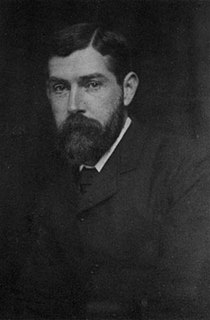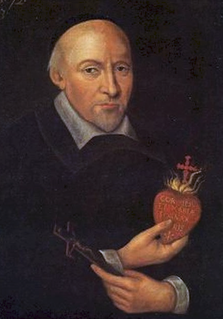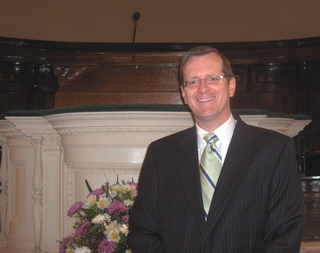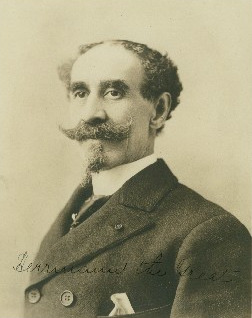Ein Zitat von Charles Spurgeon
Was auch immer ein Mensch abhängig ist, was auch immer seinen Geist regiert, was auch immer seine Zuneigungen regiert, was auch immer der Hauptgegenstand seiner Freude ist, es ist sein Gott.
Themen zitieren
Verwandte Zitate
Ganz gleich, wofür der Mensch steht, was auch immer er tut, wozu auch immer er seine Hand anwendet – in der Landwirtschaft, im Handel und in der Industrie, oder mit seinem Geist, in der Welt der Kunst und der Wissenschaft – er ist, in was auch immer es sein mag, ständig vor dem Angesicht Gottes stehen. Er steht im Dienst seines Gottes. Er muss seinem Gott strikt gehorchen. Und vor allem muss er die Ehre seines Gottes anstreben.
Der Meister der Lebenskunst macht kaum einen Unterschied zwischen seiner Arbeit und seinem Spiel, seiner Arbeit und seiner Freizeit, seinem Geist und seinem Körper, seiner Information und seiner Erholung, seiner Liebe und seiner Religion. Er weiß kaum, was was ist. Er verfolgt einfach seine Vision von Exzellenz bei allem, was er tut, und überlässt anderen die Entscheidung, ob er arbeitet oder spielt. Für ihn tut er immer beides.
In welchem Lebensbereich auch immer man sich den Herausforderungen des Mutes stellt, welche Opfer er auch immer ertragen muss, wenn er seinem Gewissen folgt – der Verlust seiner Freunde, seines Vermögens, seiner Zufriedenheit, sogar der Wertschätzung seiner Mitmenschen –, jeder Mensch muss entscheiden für sich selbst den Weg, den er einschlagen wird. Die Geschichten über vergangenen Mut können diese Zutat definieren – sie können lehren, sie können Hoffnung geben, sie können Inspiration liefern. Aber Mut selbst können sie nicht liefern. Dazu muss jeder Mensch in seine eigene Seele schauen.
Gottes sorgfältige Anweisungen zum Bau der Stiftshütte in Exodus 31 erinnern uns daran, dass seine Vollkommenheit den Maßstab für alles setzt, was wir in seinem Namen erschaffen. Was auch immer wir machen – nicht nur in der bildenden Kunst, sondern in allen Künsten – wir sollten es so gut wie möglich machen und Gott unser Bestes geben.
Niemand ist ohne Christentum, wenn wir uns darüber einig sind, was wir mit diesem Wort meinen. Es ist der individuelle Verhaltenskodex jedes Einzelnen, durch den er sich zu einem besseren Menschen macht, als seine Natur sein möchte, wenn er nur seiner Natur folgt. Was auch immer sein Symbol ist – Kreuz oder Halbmond oder was auch immer – dieses Symbol erinnert den Menschen an seine Pflicht innerhalb der Menschheit.
Der Mensch ist in seinem rohen, natürlichen Zustand, wie er vom Mutterleib ankommt, moralisch und geistig verdorben in seiner Veranlagung und seinem Charakter. Jeder Teil seines Wesens – sein Geist, sein Wille, seine Gefühle, seine Zuneigungen, sein Gewissen, sein Körper – wurde von Sünde beeinflusst (das ist es, was mit der Lehre der völligen Verderbtheit gemeint ist).
Jedem Kind wurde von der Wiege an beigebracht, dass Geld der Mammon sei, der Hauptagent des Fleisches und des Teufels. Als er heranwuchs, war es seine Pflicht als Christ und Gentleman, den Anschein zu erwecken, dass er schmutzigen Profit verachtete, was auch immer seine geheime Meinung dazu sein mochte.




































